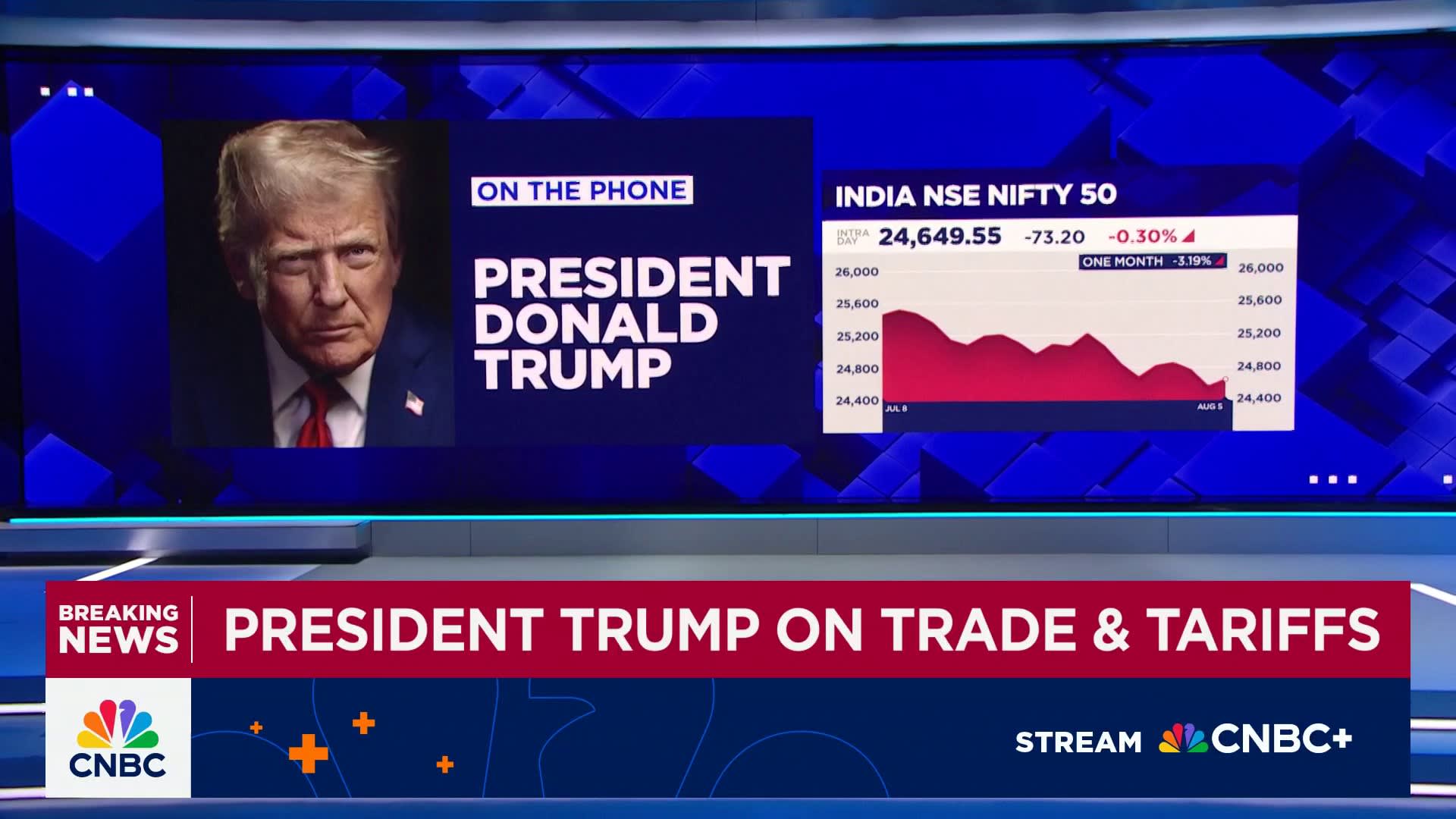India's Oil Strategy Faces New Challenges Amid US Tariffs
India, the world's third-largest oil importer, is navigating complex geopolitical waters as the United States imposes tariffs in response to its continued purchase of Russian oil.
Trump's Tariffs and India's Response
President Trump has levied a 50% tariff on Indian exports to the U.S., citing concerns that India's oil purchases are fueling Russia's war efforts. Despite this pressure, India maintains that its oil strategy is in its national interest, aiming to stabilize global oil prices.
Potential Impact on Global Oil Prices
A source within the Indian petroleum sector told CNBC that if India were to halt its intake of Russian crude oil, global oil prices could potentially surge, impacting consumers worldwide.
Refining Challenges and Alternatives
Many Indian refineries are optimized for processing high-sulfur crude, similar to Russia's Urals. This makes a rapid shift to other sources challenging. Alternatives being considered include crude oil from West Africa and South America.
China's Role
Experts suggest that China could potentially absorb some of Russia's oil supply, freeing up resources for India.
Economic Implications
The shift presents logistical and economic challenges. Refining margins could be affected and the Indian economy potentially burdened.
Geopolitical factors
Experts note that US tariffs complicate the situation, especially concerning the import of US crude. Amidst this, OPEC+ also are considering potential Russian supply disruptions

